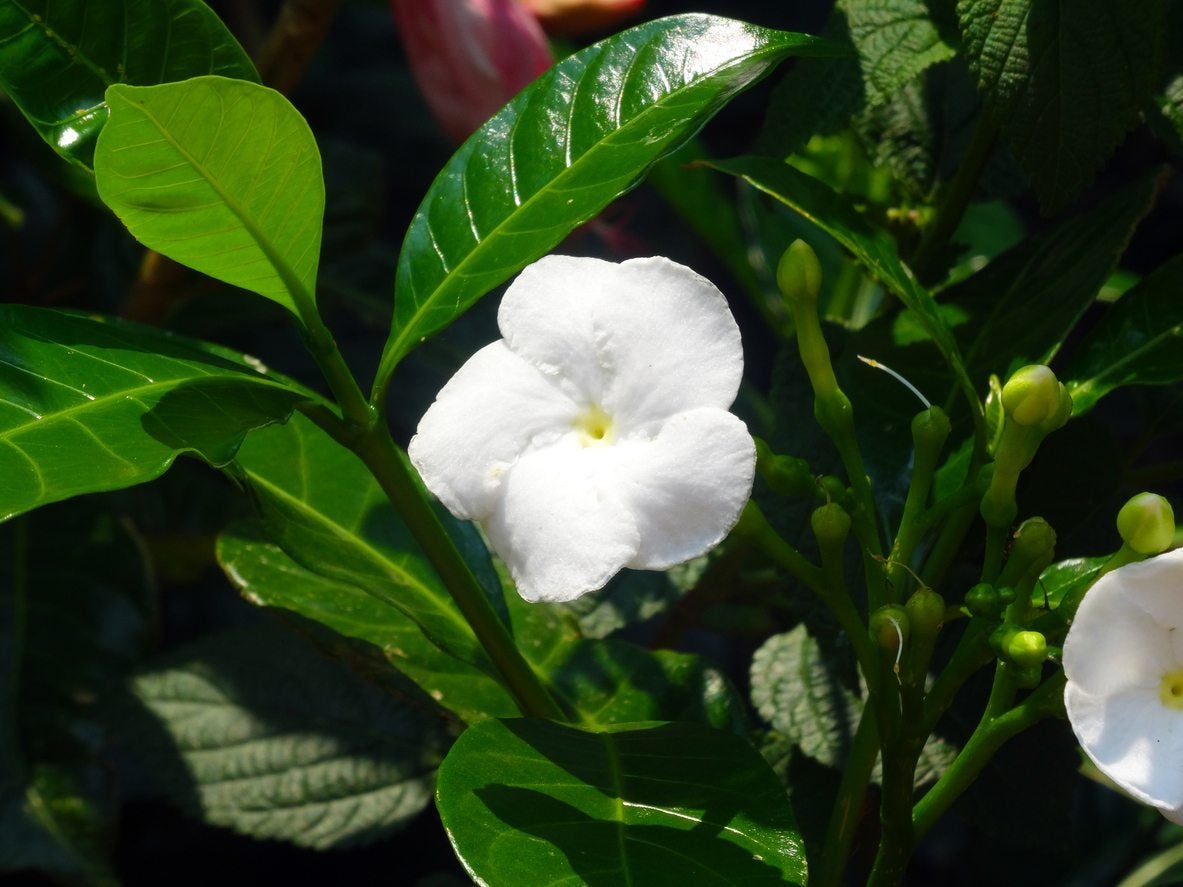Growing Jasmine In Zone 9: Best Jasmine Plants For Zone 9 Gardens


One of the sweetest smelling plants is jasmine. This tropical plant is not hardy below 30 degrees F. (-1 C.) but there are hardy jasmine plants for zone 9. Selecting the correct cultivar that can withstand some cold temperatures and the possibility of freezing is the key to success in zone 9. You can also try planting tropical types in a container and bring them indoors in winter. There are other tricks to protect the plant when growing jasmine in zone 9.
Selecting Zone 9 Jasmine Plants
When selecting a new plant specimen, it is a waste of time and money to treat it as an annual and simply let it die when the cold season arrives. That is why choosing a jasmine that is appropriate for your area is so important. Zone 9 jasmine must be cold hardy and tolerant of light freezes, which will occasionally happen. Site is also important but the ability of the plant and its roots to survive winter should be paramount. Fortunately, there are many suitable jasmine vines for regions that might receive a freeze. No matter where you live, paying attention to plant tags can ensure that a plant can survive in your garden. Plant tags tell you what kind of lighting the plant prefers, its moisture needs, how big it will get, and its zone. If a plant says it is suitable for zones 4 to 9, for example, all gardeners within those zones can successfully grow that plant. Jasmine vines in zone 9 must be able to stand some freezing temperatures and soil. The four main varieties that grow in zone 9 are Italian, Winter, Common, and Showy. Each grows well in zone 9, but each has slightly different forms and cultural needs. Both winter jasmine and common jasmine are twining vines, while showy jasmine and Italian jasmine are mounding, shrub-like forms. All varieties will benefit from some mulch around the root area prior to winter to protect the roots.
Vining Forms of Jasmine
Asiatic jasmine is a dwarf plant that can be used as a groundcover or trained up a small trellis. It is extremely fragrant and has small, variegated leaves. Maid of Orleans is the source of jasmine tea while Madagascar jasmine is a large vine with tiny starry flowers. The latter can grow 20 feet tall (6 m.). Star jasmine is a smaller vine but produces prolific blooms. These can be steeped in water and used to make jasmine rice. Jasminum officinale is also known as hardy jasmine. It actually needs a cold period to produce flowers. In areas with cooler nighttime temperatures, it will bloom in fall and spring. It is often used to make essential oils.
Bushy Jasmine Plants for Zone 9
There are many bush forms of jasmine suitable for zone 9. Day blooming jasmine forms a shrub that is up to 8 feet tall (2 m.). It is most fragrant during the day and the flowers are followed by black berries. Night blooming jasmine is a loose shrub with long arching stems. The flowers are tiny but intensely fragrant in the evening and early morning. Flowers develop into white berries. Other types to try include:
- French Perfume is a cultivar with semi-double flowers.
- For a unique flower appearance, try Angel Wing jasmine. It has up to 10 slender, pointed white petals.
- One of the larger blooming cultivars is Grand Duke. Flowers are up to an inch across (2.5 cm.) and double.
- Pinwheel jasmine produces a waist high plant with flowers whose petals swirl around the center.
All jasmines prefer well drained soil in sun to partial shade. They are low maintenance with pruning a personal option. Jasmine are long lived plants that will perfume your days (or nights) for years to come.
Gardening tips, videos, info and more delivered right to your inbox!
Sign up for the Gardening Know How newsletter today and receive a free copy of our e-book "How to Grow Delicious Tomatoes".

Bonnie Grant is a professional landscaper with a Certification in Urban Gardening. She has been gardening and writing for 15 years. A former professional chef, she has a passion for edible landscaping.